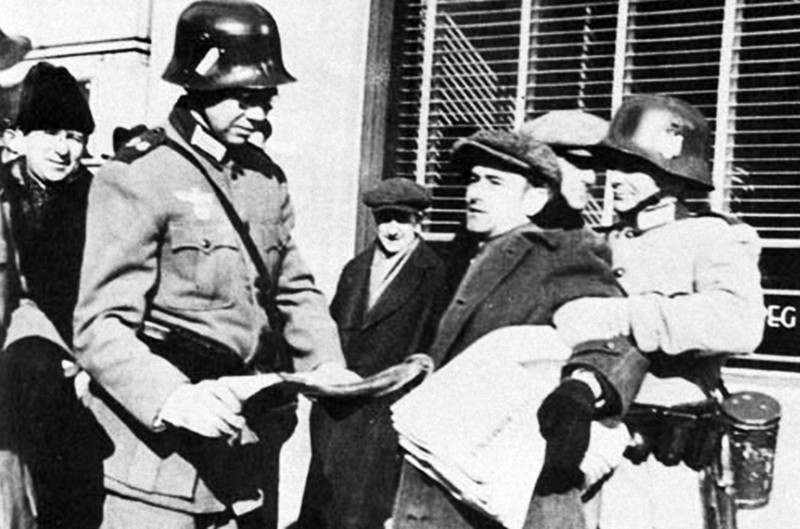When the war came to Winnipeg
Remembering If Day, 70 years later
Once upon a time - on Feb. 19, 1942, to be exact - it looked as if the world were coming to an end right here in Winnipeg, Man.
Now, the 70th anniversary of “If Day” is upon us.
It was on this date that 3,500 volunteers and Canadian military personnel successfully “invaded” our fair city, all the while dressed as conquering Nazi soldiers.
City Hall was captured, a swastika-bearing flag hoisted on its grounds. The legislature building soon fell victim as well. The mayor, premier, lieutenant governor and other government officials were arrested in short order.
A city newspaper was even taken over for the day, its contents altered to reflect the centre’s new leadership.
“The idea behind the event was basically to say that ‘We don’t want this happening here’,” said Aaron Floresco, director of 2006 documentary If Day: The Nazi Invasion of Winnipeg.
The event was not intended to fool the population. In fact, journalists and photographers from all across North America were present for the mock invasion.
“(If Day) got a lot of press at the time,” said Floresco.
There was, however, a more pragmatic reason for the event: fighting a real war overseas had not proven cheap for the Canadian government. The sale of war bonds to civilians was a solution, but in order to increase sales, Canadians living a world away from the front lines needed a dose of reality in order to boost their contributions.
“Workers were coming out of a long period of suppressed wages,” said Nolan Reilly, a history professor at the University of Winnipeg. “The whole idea of putting money into war bonds created a kind of tension.”
The fruits of If Day’s organizational labour ended up being well worth the effort, with resulting war bond sales rising well above the campaign’s original goal.
Rob Christiansen, who works for the City of Winnipeg in the department of film and special events, attests to the event’s magnitude.
“I’ve seen some great examples of event organization,” he said. “The fact that they pulled it off was an impressive bit of logistics and community involvement.”
It may be surprising to some that If Day is such an uncommonly known event, considering its massive scale and historical significance.
“It was an event that was largely forgotten,” said Floresco, who uses his documentary to explore the subject. “I wanted to bring the story back to life.”
“It was such a great event pulled off in such a short period of time,” he added, saying that he was attracted to the unspoken “quirkiness” of the story.
It’s been said that it takes the world ending for people to come together - perhaps, though, pretending that the end is near can accomplish just the same.
To learn more about If Day, check out Aaron Floresco’s documentary, If Day: The Nazi Invasion of Winnipeg. To view the trailer, visit www.pastperfectpro.com/films/page7/ifday.html.
Published in Volume 66, Number 21 of The Uniter (March 1, 2012)







